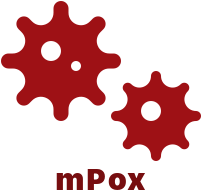Meet Galaxy -
a data analysis universe
Galaxy is a free, open-source system for analyzing data, authoring workflows, training and
education, publishing tools, managing infrastructure, and more.
Learn
From curated tools and workflows to self-paced tutorials available on the Galaxy Training Network (GTN), there are plenty of materials to learn from.
Tutorials
Access topic-based trainings for free.
Videos
Watch to learn, including conferences.
Vetted workflows
(Re)use or adapt quality workflows.
News
Read highlights from our community.
Data
Pull data from popular repositories.
Community
Explore the world-wide community.
FAQ
Common questions. Good answers.
Help & support
Advice is always available.
Galaxy is more than you think
Galaxy is a world-wide community.
There are over 500,000 registered Galaxy users from all over the world. Join this lively community to get help, contribute, and learn.
Galaxy has 1,000s of tools
In partnership with BioConda and BioContainers, Galaxy provides instant access to vast number of analysis tools.
Rapidly put your tools before 1,000s of users
Planemo, Galaxy's SDK, automates creation, testing, and deployment of tools, workflows, and interactive tutorials.
Galaxy makes learning accessible
Galaxy Training Network has 100s of community-vetted, hands-on tutorials on a variety of topics.
Galactic pulse
Popular tutorials
Choose from these self-paced tutorials to perform a comprehensive analysis or hone your skills on a specific topic.
Upcoming events
The Galaxy community puts on a show every year with dozens of events around the world.
Next up:
Dec 12 | Tools for Tomorrow NIAID BRC Webinar |
Dec 18 | Small Scale Galaxy Admins Meeting |
Jan 9 | PAG 33 Plant and Animal Genome Conference |



